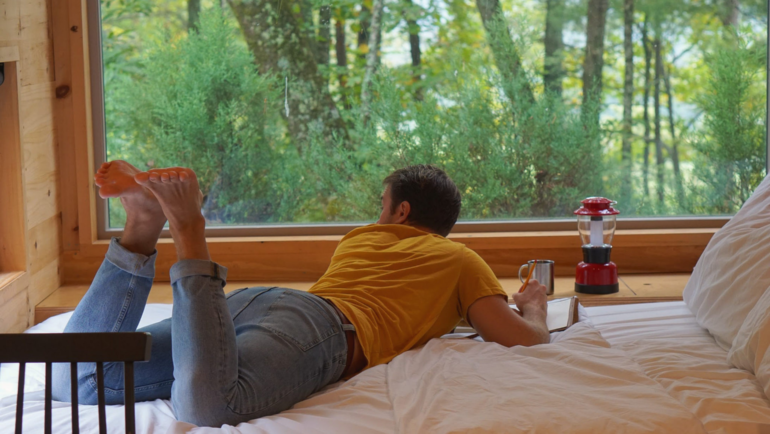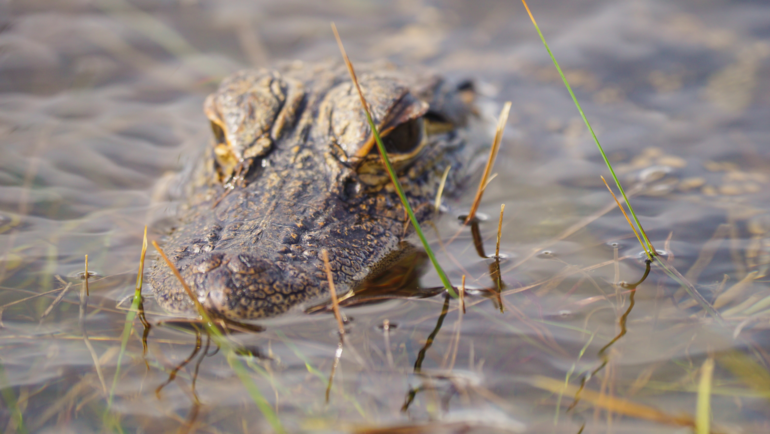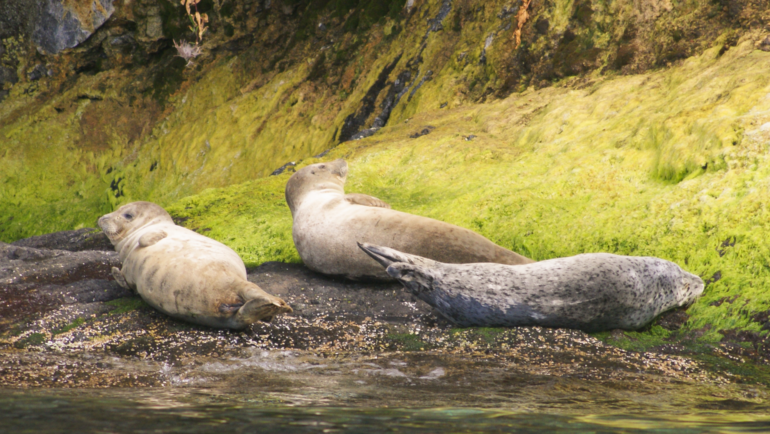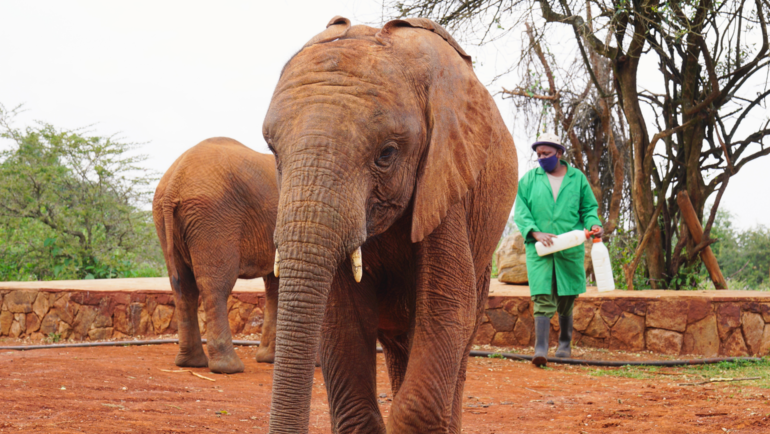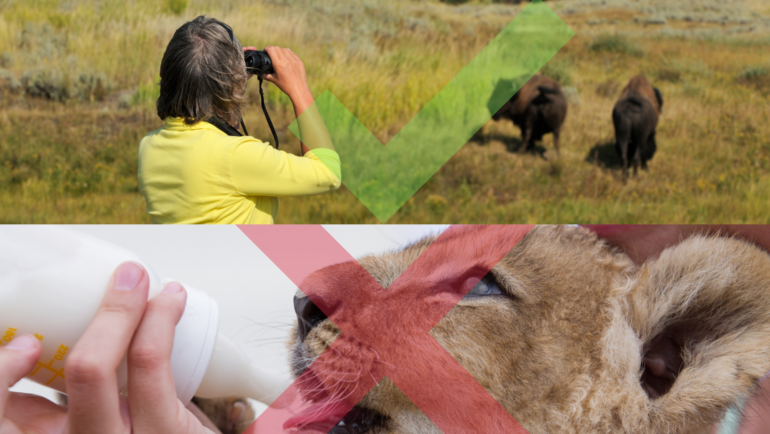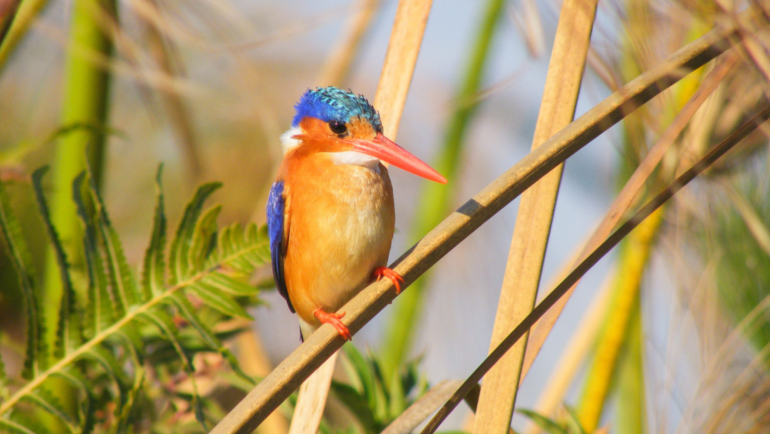How to Avoid Elephant Abuse While Traveling
We are passionate about the humane treatment of animals. We believe in speaking up for animals being abused within the tourism industry. We are especially passionate about standing up for elephants, which are sadly one of the most abused animals exploited for paying tourists.
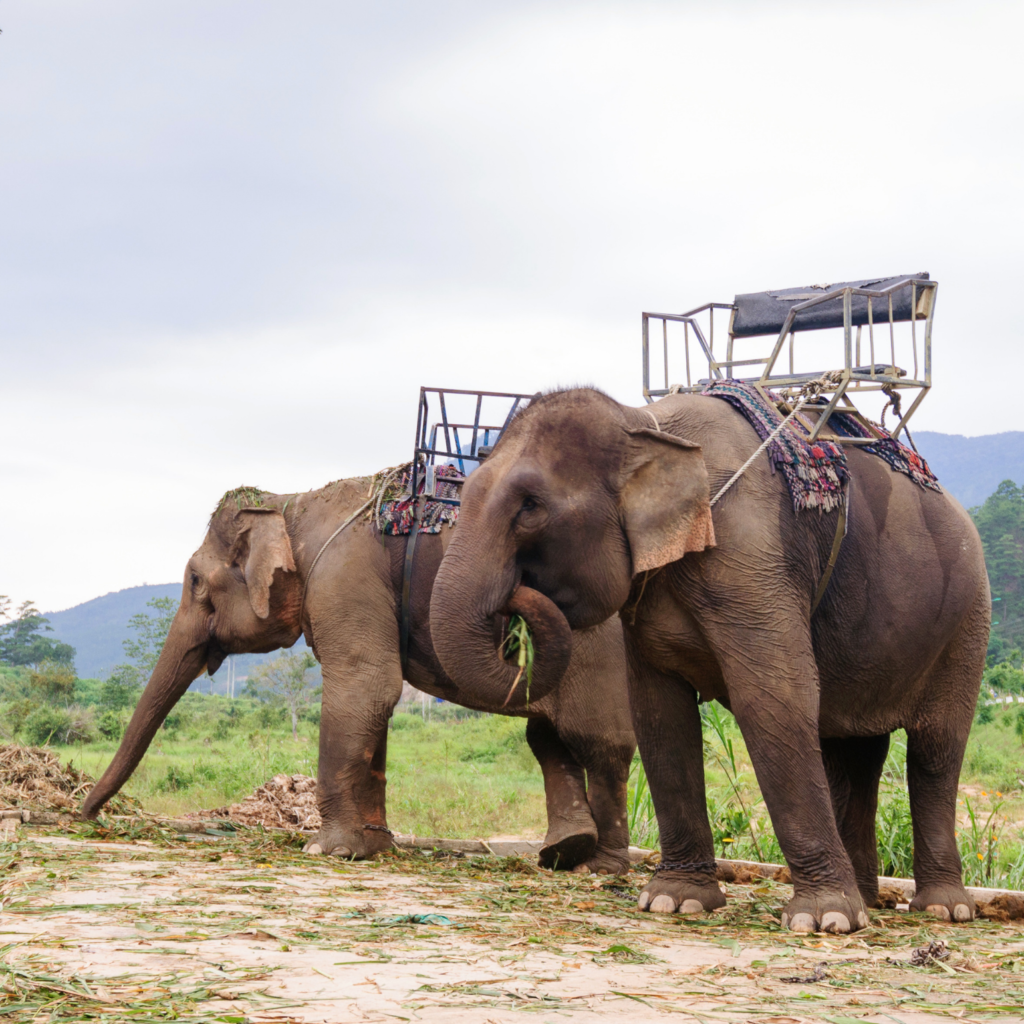
There are over 3,800 captive elephants across Asia suffering within the tourism industry. 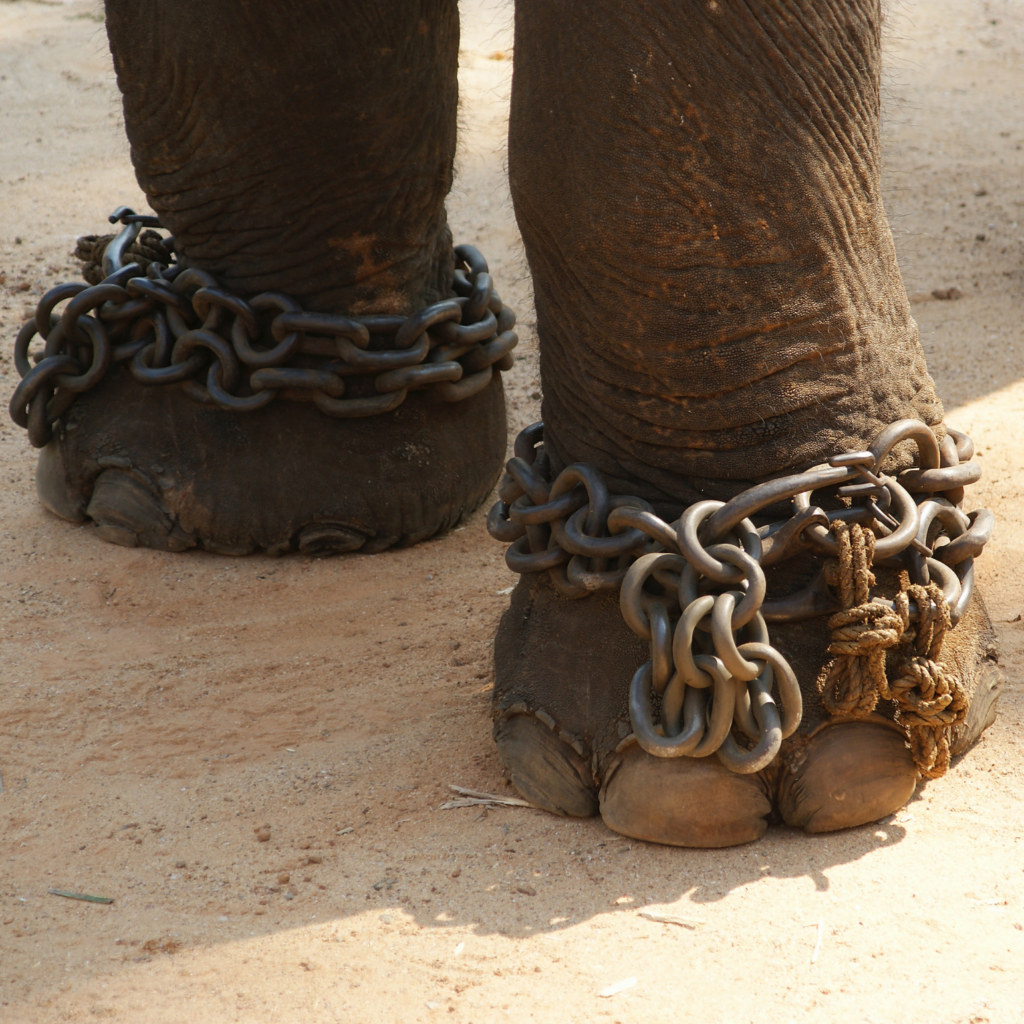
Most elephants in the tourism industry are kept in severely inadequate conditions, many with crippling medical conditions.
These enormous animals are an enormous business for tourist destinations – offering interactions such as shows, elephant rides, bathing opportunities, or simply using them as photo props for selfies. World Animal Protection, an international non-profit animal welfare organization, has surveyed the tourism industry throughout Asia and counted over 3,800 captive elephants across multiple countries. The reality is, most of these elephants are kept in severely inadequate conditions, many with crippling medical conditions.
Thankfully, a shift has begun among informed tourists that have started to understand the deplorable nature of this industry. Research has even shown a growing awareness among tourists that now believe practices like riding elephants and attending shows causes suffering. But instead of reducing the demand for elephant entertainment overall, this awareness has created a shift in popularity towards activities that are just as detrimental to elephants. Now the tourism industry is booming with options like elephant bathing or painting with elephants. Though these practices seem ‘softer’ than riding or performing – at their core they are just as exploitative and cause severe elephant suffering.
Together we can become elephant-aware and learn how to avoid elephant abuse and help to end these barbaric practices. Additionally, we will identify elephant-friendly practices and organizations to support. Together we can work towards a better tourism industry for all wildlife!
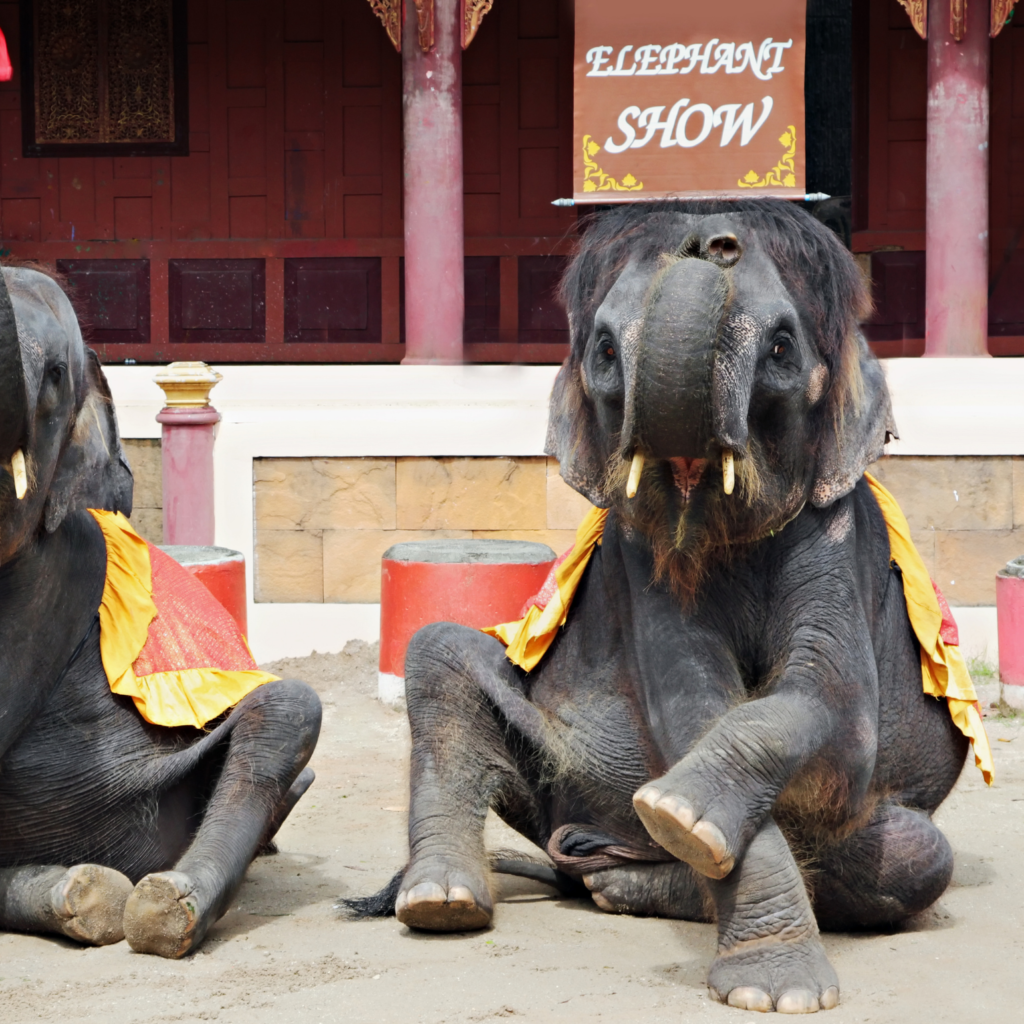
Together we can become elephant-aware and learn how to avoid elephant abuse and help to end these barbaric practices. 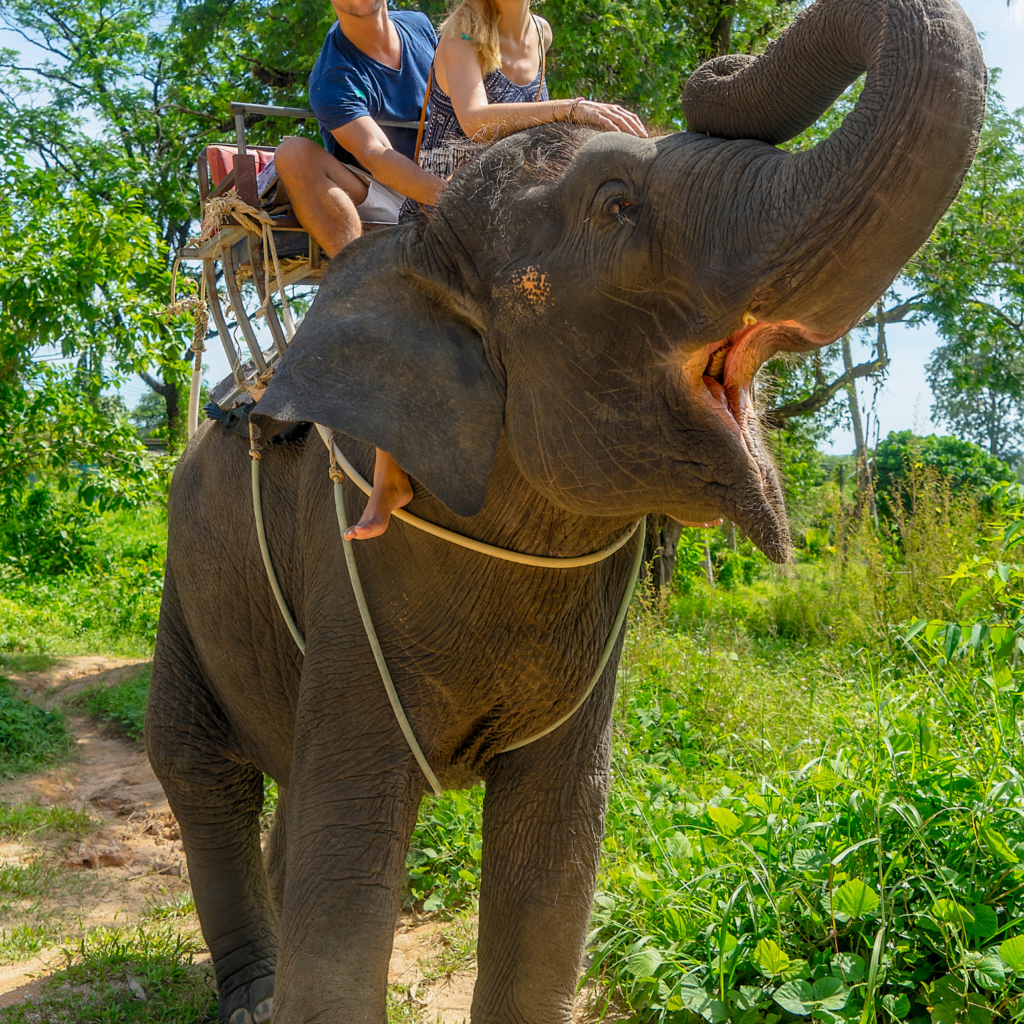
Research has even shown a growing awareness among tourists, that now believe practices like riding elephants and attending shows causes suffering.
Why is Most Elephant Tourism So Inhumane?
A common misconception about Asian elephants is that people think they have been domesticated and that somehow, it’s alright to dominate control over them. The truth is elephants have never been selectively bred like livestock or dogs, they are NOT domesticated, even elephants born in captivity are still WILD animals. In fact, many elephants in captivity have come directly from the wild, some even captured as babies. The indoctrination process for captive elephants is extremely brutal. Often the animal is caged and restrained for weeks while handlers beat it and force it to obey commands. This practice of elephant crushing, an effort to break their spirit making them submissive to humans, is a long-standing tradition in Thai culture. This cruel training method is often what elephants undergo to become part of the tourism industry.
However, this is not the only reason you should skip cruel elephant attractions. The reality is any facility that offers close contact with elephants must keep them controllable while paying tourists are near. This is done using a range of techniques, including the use of a bullhook- a metal tool used to jab sensitive areas, and by restraining them with chains. This is true both for captive Asian elephants, and the growing number of captive African elephants used within the safari tourism industry.
4 Tips to Avoid Supporting Elephant Abuse
1. Don’t Be Fooled by Names: Tourist venues might go by the name of sanctuary or rescue center, but don’t automatically assume this means quality welfare. Be sure to “look before you book” to ensure the venue has the best interest of elephants at its center.
2. Seek Natural Behaviors: Wild elephants spend their days roaming long distances searching for food and socializing with other elephants. If the elephants at the venue you are considering aren’t allowed to express natural behaviors in natural spaces then go elsewhere.
3. Baby Boom Bummer: True elephant-friendly destinations don’t allow breeding. Baby elephants are tourist magnets. If you can see or touch a baby elephant, especially without its mother, this operation does not value ethical care.
4. Keep Your Distance: Elephants are wild animals, and can be unpredictable and dangerous, make sure they are treated with respect. If you are allowed in close contact to touch and feed the elephants, ensure that these interactions are limited and not exploitive. Most elephants are cruelly trained to allow close interactions like these. Strive for elephant-friendly destinations that encourage guests to enjoy the elephants from a distance.
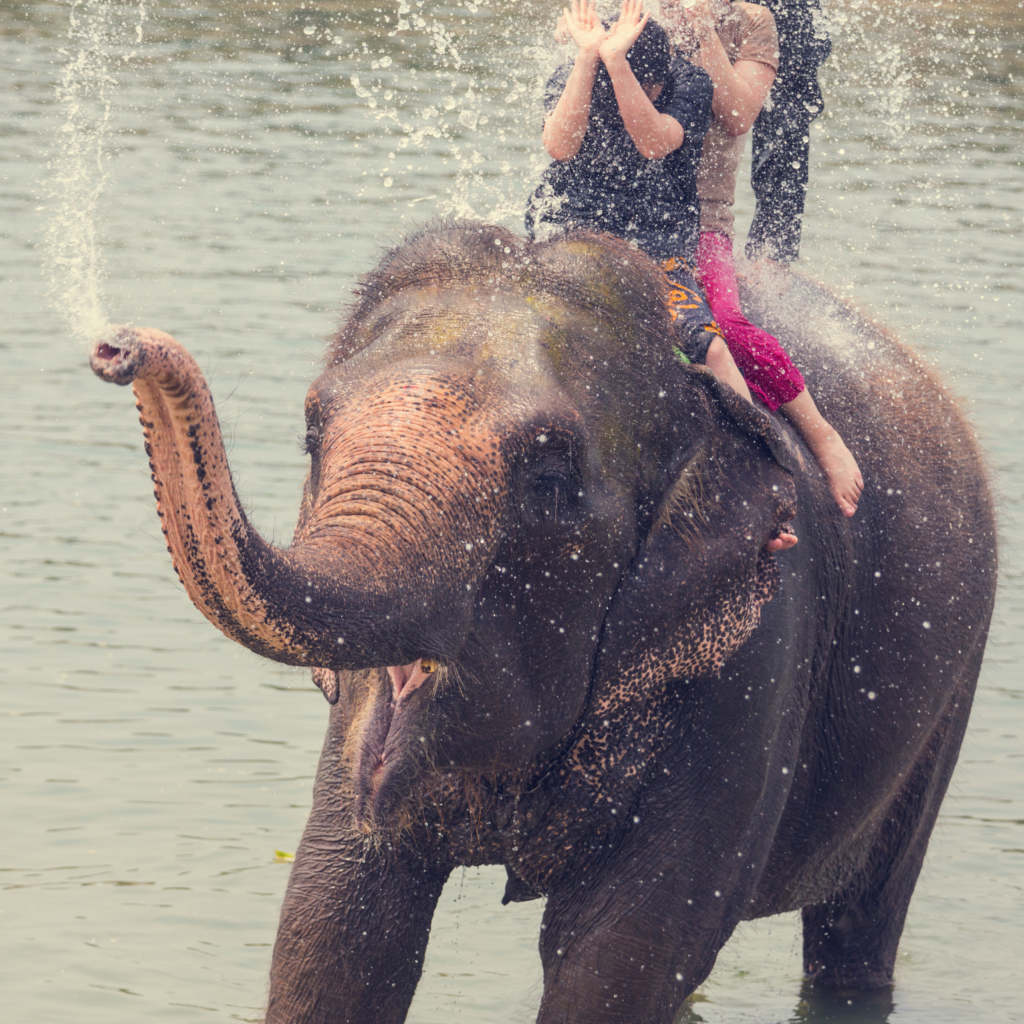
Though elephant baths seem ‘softer’ than riding or performing – at their core they are just as exploitive and cause severe elephant suffering. 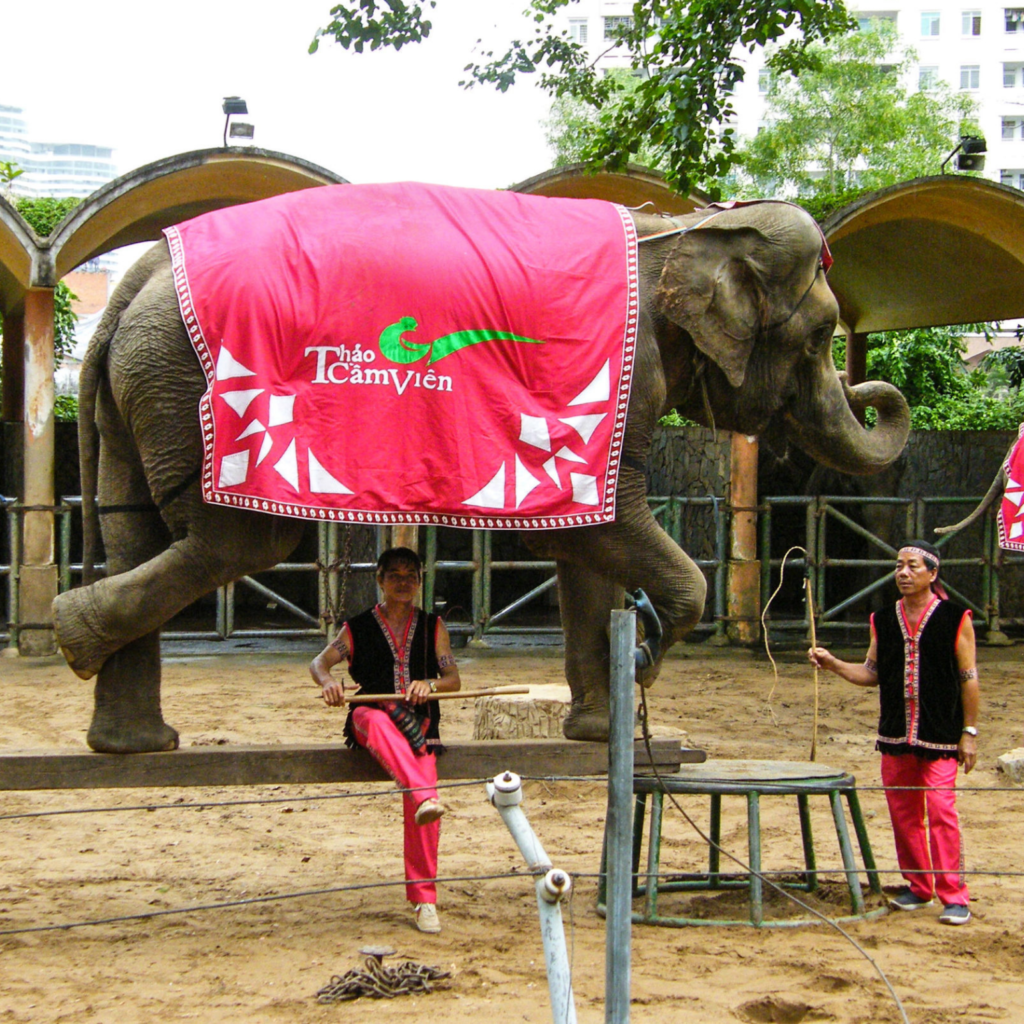
Unnatural behaviors the elephants are forced to perform during shows at Ho Chi Minh City Zoo in Vietnam.
Where to Find Ethical Elephant Destinations
The best way to see elephants is to observe them ethically in the WILD. But there are a growing number of elephant-friendly options where tourists can help support an ethical shift in the industry. Some tour operators and venues that historically offered less humane interactions with elephants have now evolved to a new model. Many now practice activities centered around visitors observing elephants acting naturally within humane settings.
To make finding these elephant-friendly options easier, World Animal Protection has developed a list of approved venues in Thailand, Cambodia, Nepal, and Laos that are doing the right thing for elephants. These elephant-friendly venues provide quality care and respect for their elephants, while still providing jobs and a valuable income to local people, especially the elephant caretakers known as mahouts.
Thailand:
·Elephant Nature Park: world-famous elephant sanctuary working to end elephant suffering in tourism
·Following Giants: transitioned towards an elephant-friendly business model
·ChangChill: this facility has moved to a new model where visitors can observe the elephants being elephants from a safe distance
·Boon Lott’s Elephant Sanctuary: a reputable sanctuary where elephant interaction does not compromise their care and welfare
·Burm and Emily’s Elephant Sanctuary: passive observation of rescued elephants in a natural forest space
·Mahouts Elephant Foundation: a unique safari-style model of elephant tourism
·Phuket Elephant Sanctuary: bordering a national park this lush home lets elephants be elephants
·Samboon Legacy: hands-off elephant sanctuary
·Tree Top Elephant Reserve Phuket: pioneers in ethical elephant tourism for their rescued and retired residents
Cambodia:
·Elephant Valley Project: sanctuary created to offer care for injured and overworked elephants
Nepal:
·Tiger Tops: Nepal´s first and only facility to offer responsible elephant experiences
Laos:
·Mandalao Elephant Conservation: observation-based tours transitioning to a fully elephant-friendly model
For additional information on how to avoid elephant abuse while traveling check out the World Animal Protection: Elephant Friendly Tourist Guide.
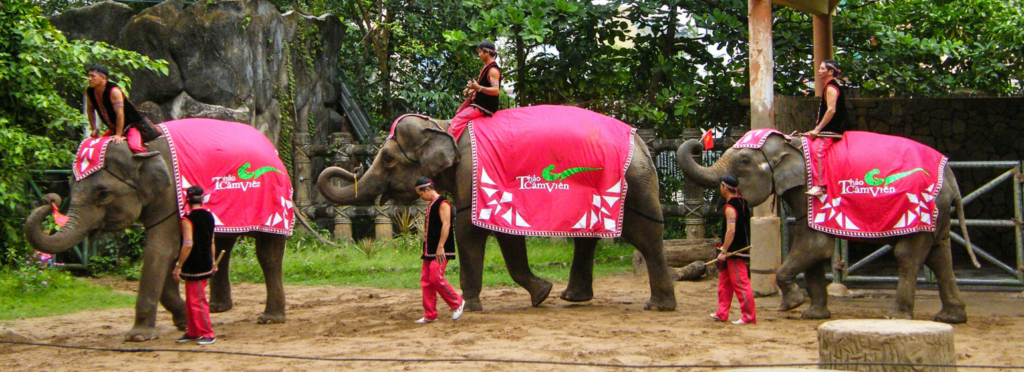
What Can YOU Do Help Protect Elephants From Abuse
Support only responsible tourism projects. Be elephant aware! Ensure the destinations you visit are reputable elephant-friendly facilities or better yet observe elephants in the wild. Before, during, and after your travels identify places where tourists are educated about the importance of caring for elephants. Together we can work towards a better tourism industry for all wildlife!
Be sure to share your opinion! Help inform your friends, family, and colleagues of the importance of supporting ethical elephant care. Spreading awareness is the key to reducing the exploitation and abuse of animals.
As an eco-tourist, YOU have the power to make change for wild animals. When travelers like you decide to support only humane treatment of animals, the wildlife tourism market will change for the better.
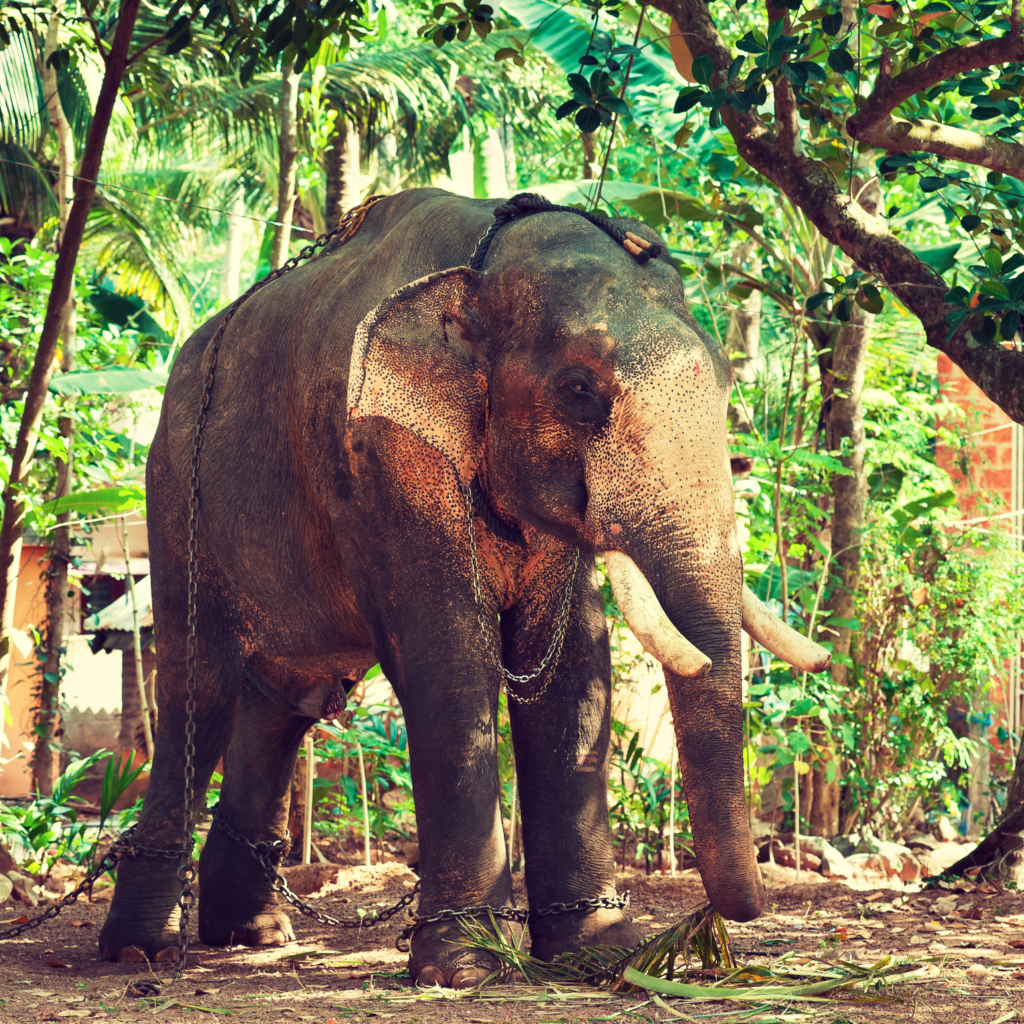
Male elephants are often the most abused and neglected in tourism operations. 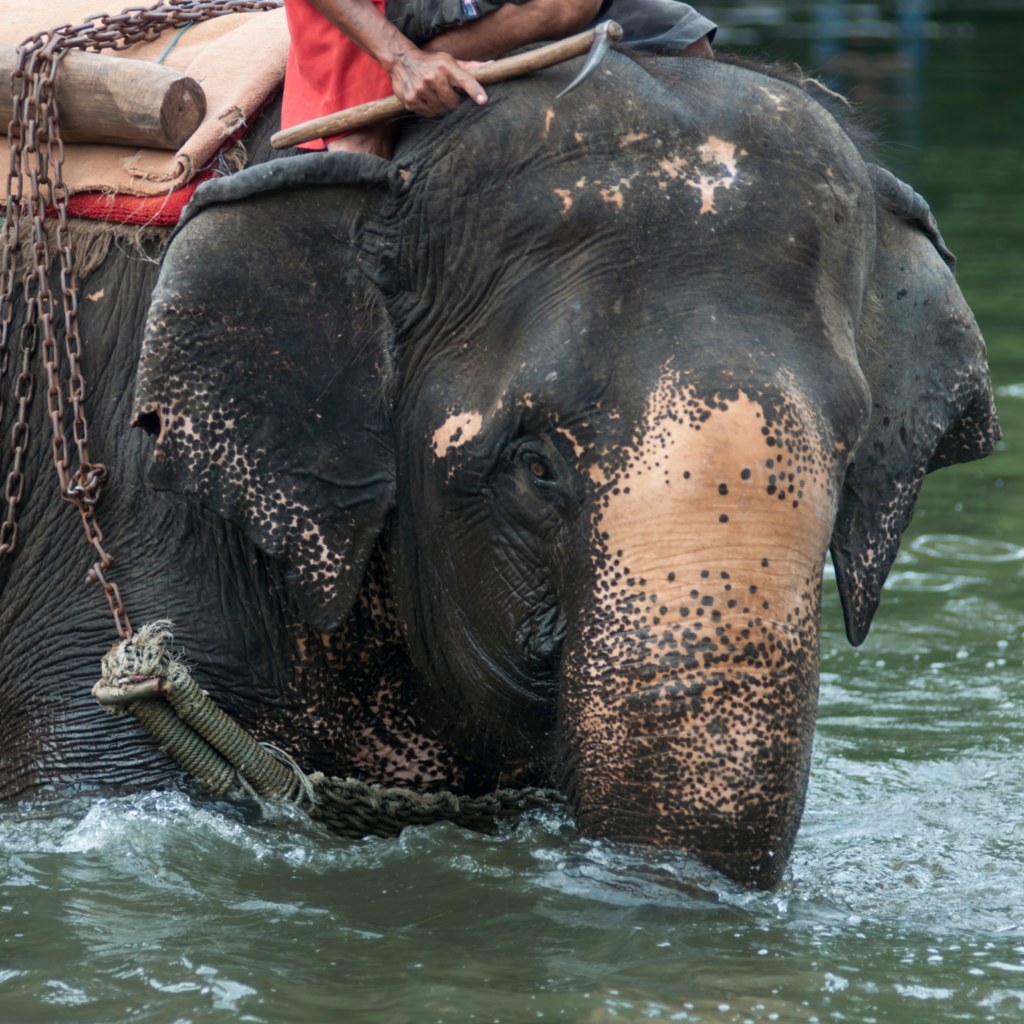
Elephants are an enormous business for tourist destinations to exploit.


